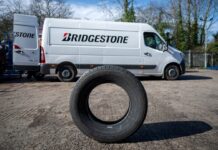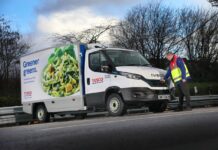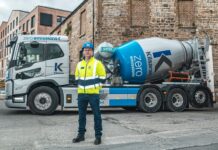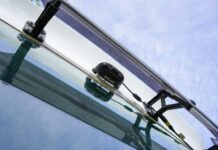The trailer has a significant impact on how economical and climate-friendly the transport is. The EU has also recognised this; from 2024 on the EU will be certifying trailers according to their CO2emissions.
BPW products already fulfil the requirements of the EU simulation tool VECTO, which makes it easier to compare trailers and rewards climate-friendly technologies with a CO2 bonus.
The EU has set ambitious climate protection targets – but these are being missed by the transport sector: Road transport of goods is increasing, which means that transport vehicles’ CO2emissions are also increasing.
Therefore, in addition to towing vehicles, the EU will set fleet thresholds for trailers for the first time from 2024 on. This should reduce CO2 emissions by 15 percent until 2025 and by 30 percent until 2030 compared to the 2019/2020 reference period. Trailer manufacturers who fail to comply with the fleet consumption targets can expect fines.
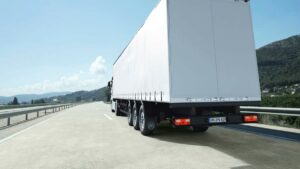 1- to 3-axle semi-trailers will be certified, as well as central axle and turntable trailers. This includes all trailers with box-shaped structures, i.e. solid box vans, as well as curtainsiders. The trailers’ CO2 emissions are determined using software specially developed for this purpose: The simulation program “VECTO (Vehicle Energy Consumption Calculation Tool) for Trailers” calculates different usable loads and dimensions, but also takes into different bonus factors; this is how the reduced fuel consumption results in bonus factors of up to 4.5 percent through the use of lifting and steering axles and depending on the driving cycle. The use of lightweight running gear is also rewarded.
1- to 3-axle semi-trailers will be certified, as well as central axle and turntable trailers. This includes all trailers with box-shaped structures, i.e. solid box vans, as well as curtainsiders. The trailers’ CO2 emissions are determined using software specially developed for this purpose: The simulation program “VECTO (Vehicle Energy Consumption Calculation Tool) for Trailers” calculates different usable loads and dimensions, but also takes into different bonus factors; this is how the reduced fuel consumption results in bonus factors of up to 4.5 percent through the use of lifting and steering axles and depending on the driving cycle. The use of lightweight running gear is also rewarded.
The BPW Group fulfils the EU climate protection targets for trailers: BPW has been demonstrating the CO2 and fuel savings of its trailer solutions for years, along with specific figures about reduced tyre wear and other system advantages relevant to the economics of transport.
BPW is a member of the VECTO committees, where it advocates for considering further consumption-reducing solutions. These include, among other things, regenerative braking axles that generate power for electric cooling units while driving.
Bernd Rhein, Application Engineering Manager at BPW: “There are still a few unanswered questions before the final design of the certification. More consideration of the benefits of transport would be desirable. A high-volume transporter that makes maximum use of the legally permitted dimensions, for example, might get a worse rating than a standard vehicle according to the current plan. Longer vehicle combinations and drawbar trailers with more than three axles are also lacking.
“A little more fine-tuning is needed to realistically reflect the economic factors and climate-friendliness of these vehicles. In principle, we are headed in the right direction. The regulation is a great advantage for innovative vehicle manufacturers and their system partners. It creates more transparency and comparability, where previously the sales price was the main focus. The new trailer certification will be a win-win situation for our environment and for vehicle operators.”




